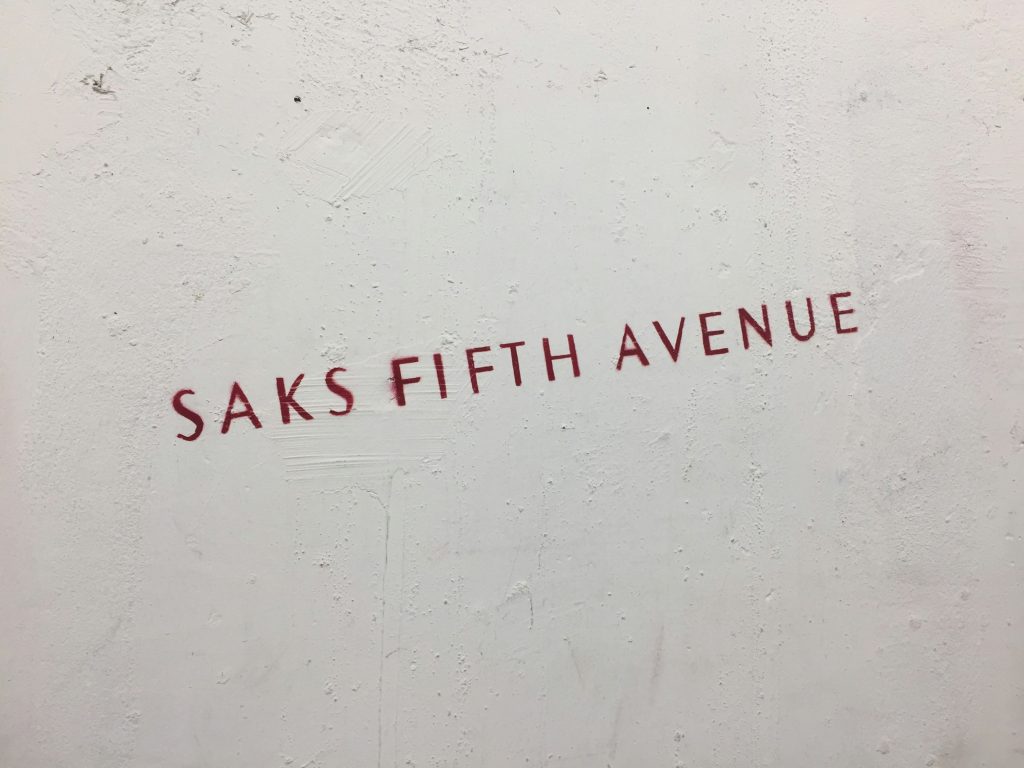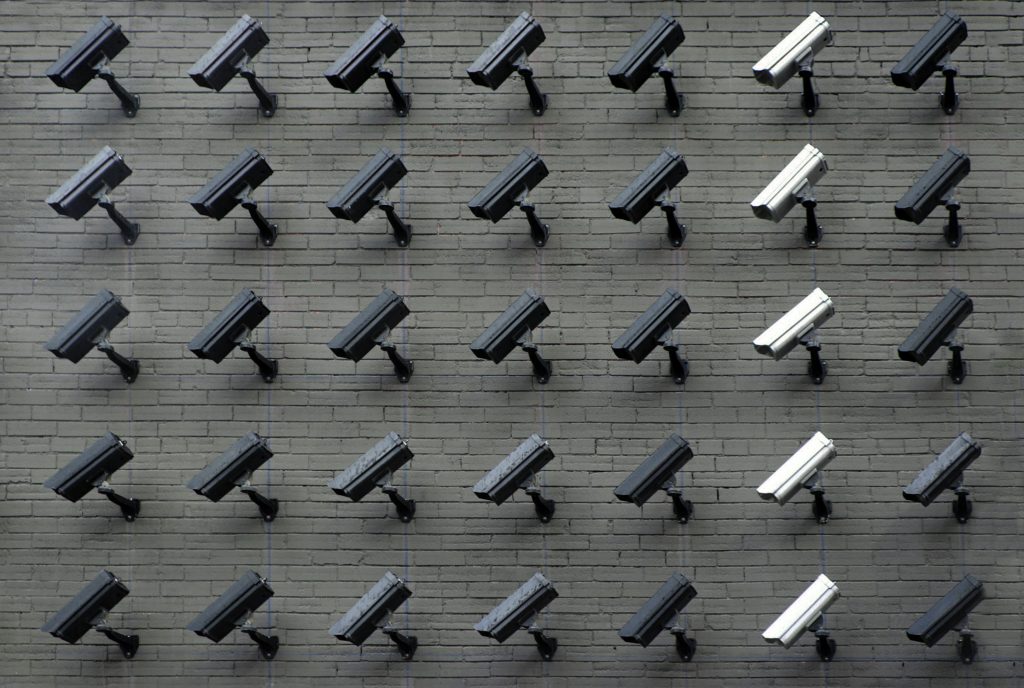DOJ v. “The Blue Bubble”

By: Alyson Rish*
On March 21, 2024, the United States Department of Justice (DOJ) and 16 other state and district attorneys general filed an antitrust lawsuit in the United States District Court for the District of New Jersey against the popular smartphone manufacturer, Apple.[1] Plaintiffs allege that Apple has monopolized the smartphone market in violation of Section 2 of the Sherman Act.[2] The DOJ maintains that “Apple undermines apps, products, and services that would otherwise make users less reliant on the iPhone, promote interoperability, and lower costs for consumers and developers.”[3]
The complaint specifically identifies five tactics used by Apple that unfairly lock Apple users in as customers, deterring them from freely switching to a competitor smartphone: blocking innovative super apps, suppressing mobile cloud streaming services, excluding cross-platform messaging apps, diminishing the functionality of non-apple smartwatches, and limiting third party digital wallets.[4] Among these, one particularly hits home for the average smartphone user – iMessage. Since its inception in 2011,[5] iMessage has made non-iPhone users the brunt of “green bubble” jokes and ostracization as text messages between non-iPhone and iPhone users appear within a green speech bubble as opposed to the blue speech bubble that appears around messages between two iPhone users. Aside from its blatant exclusivity, iMessage has provided an encrypted, seamless, way for iPhone users to sync their messages on all of their Apple products.[6] Moreover, it has created an ecosystem where iPhone users messaging each other can conveniently enjoy the same emoticons, text reactions, read receipts, minimal data compression, and text surrounded by the ever-so-trendy blue bubble. There is no denying that Apple has excelled at creating a system that people want to buy into and have a hard time leaving. For this reason, however, it is now staring down the barrel of the DOJ whose job it is to make sure these attributes are not creating a coercive monopoly in the smartphone market.
After becoming an established Apple user, it can be painful switching to another competitor. Adrienne Moore brought suit against Apple in 2015 for exactly this reason.[7] After switching from Apple to Android, Moore realized she was failing to receive text messages from iPhone users trying to communicate with her on her Android device.[8] Through discovery, Moore put forth evidence that Apple employees both knew about the re-occurring issue of failed messaging between the smart phone competitors, and they also knew their efforts to troubleshoot the problem were grossly inadequate.[9] In line with this sentiment, the DOJ’s complaint recounts a conversation between Apple CEO Tim Cook and Vox Media’s LiQuan Hunt in which Ms. Hunt noted that she was not able to send her mother, an Android user, videos from her iPhone.[10] Mr. Cook responded, “Buy your mom an iPhone.”[11] The difficulties in communicating between competing smartphones is a concern that Apple is explicitly capitalizing on. In turn, the DOJ is bringing these concerns to court for their role in deterring competition.
In its complaint, the DOJ spends a moment discussing the effects iMessage has on consumers in the smartphone market. Its focus is largely on the disconnect between iMessage and third-party messaging apps and the less-than-ideal experience a consumer has between the two. When a non-iPhone user communicates with an iPhone user, the green bubble kicks in and the conversation loses functionality – “the conversation is not encrypted, videos are pixelated and grainy, and users cannot edit messages or see typing indicators.”[12] This sends a message to both parties that the non-iPhone is at fault for the issues, but that is not necessarily the case. The DOJ alleges that it is iMessage’s lack of compatibility with other messaging apps that is the cause of the friction. While the anti-trust division of the DOJ likely does not spin their wheels trying to cure teenage social pressures, they are concerned that the 85 percent market-hold the iPhone has on teenagers has more to do with iMessage’s exclusivity and inability to function in communication with other smartphones than it does with the iPhone being a better smartphone.[13]
Excluding cross-platform messaging apps is only one tactic the DOJ has alleged Apple has utilized in establishing a monopoly over the smartphone market. Apple is no stranger to private anti-trust litigation,[14] but with its 88-page complaint against the dominating tech-giant, the DOJ and the states that have joined it in this action have made clear that they will peruse aggressive legal remedies when they believe a United States corporation is making moves to establish a monopoly in violation of the Sherman Act, no matter how popular the corporation is. It will be interesting for smartphone users to follow along with this case that will likely linger for months, if not years. The 1998 US v. Microsoft anti-trust case spanned three years and ended in a settlement that required Microsoft to share its application programming interfaces with third-party companies.[15] If Apple is willing to share iMessaging with third parties, which they have been unwilling to do prior to this case, that may be a strong bargaining chip for it in settlement negotiations. Only time will tell what the fate of the beloved blue bubble will be.
* J.D. Candidate, Class of 2025, Sandra Day O’Connor College of Law at Arizona State University.
[1] Complaint, United States v. Apple, Inc., No. 2:24-cv-04055 (D.N.J. filed Mar. 21, 2024).
[2] 15 U.S.C. § 2 (2000).
[3] Press Release, U.S. Department of Justice, Office of Public Affairs, Justice Department Sues Apple for Monopolizing Smartphone (Mar. 21, 2024), https://www.justice.gov/opa/pr/justice-department-sues-apple-monopolizing-smartphone-markets.
[4] Id.
[5] Ysolt Usigan, Apple to Launch iMessage on Wednesday, Forget Texting, CBS News (Oct. 11, 2011), https://www.cbsnews.com/news/apple-to-launch-imessage-on-wednesday-forget-texting/.
[6] Ludo Rubin, Pros and Cons of Using iMessage for Your Business, Leap Xpert (Jan. 9, 2023), https://www.leapxpert.com/pros-and-cons-of-using-imessage-for-your-business/.
[7] Moore v. Apple Inc., 309 F.R.D. 532 (N. D. Cal. 2015).
[8] Id. at 536.
[9] Spence Howden, Text Messages Are Property: Why You Don’t Own Your Text Messages, But It’d Be a Lot Cooler If You Did, 76 Wash. & Lee L. Rev. 1073, 1099 (2019).
[10] Alex Bitter, Watch Tim Cook’s Famous ‘Buy Your Mom an iPhone’ Quip That Caught the Attention of the Justice Department, Bus. Insider (Mar. 22, 2024), https://www.businessinsider.com/tim-cook-buy-your-mom-iphone-doj-apple-complaint-2024-3.
[11] Id.
[12] Complaint at 38, supra note 1.
[13] Id.
[14] See generally Epic Games, Inc. v. Apple, Inc., 67 F.4th 946 (9th Cir. 2023) (attesting the exclusion of a gaming apps from the App Store); Apple Inc. v. Pepper, 139 S. Ct. 1514 (2019) (asserting Apple exercised monopoly power by charging high Commissions on App Store purchases); Blix Inc. v. Apple, Inc., No. 19-1869-LPS, 2020 U.S. Dist. LEXIS 224543 (D. Del. Nov. 30, 2020) (challenging the exclusion of an email program from the App Store).
[15] Renata B. Hesse, Section 2 Remedies and US v. Microsoft: What Is to Be Learned?, 75 Antitrust L.J. 847, 859 (2009).


